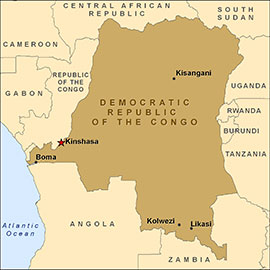
21 Aug Part of Conflict Minerals Disclosure Confirmed Unconstitutional
Despite the SEC’s attempt to force the court to reconsider, the US Circuit Court of Appeals for the DC Circuit this week reaffirmed its decision from last year that parts of the SEC’s required disclosure by public companies of their involvement with “conflict minerals” is unconstitutional. The Dodd-Frank Act of 2010 required this disclosure requiring public companies to trace their connection to so-called blood minerals from the Congo and other areas where slavery and other atrocities are apparently occurring. Larger companies started having to report this year and smaller ones will do so starting in 2017.
The key to the court decision: that it violates the First Amendment to require companies to say that their products are “DRC conflict free.” (DRC is the Democratic Republic of Congo, where blood diamonds are allegedly sold solely to perpetuate conflicts there). Because the SEC couldn’t demonstrate that the rules actually effectively reduce conflict in the DRC, they violate freedom of speech. In response the SEC no longer requires a company to state whether their products are conflict free, and are not required to do an independent audit unless they choose to state that their products are conflict free.
The bigger issue here is when it is appropriate for political and social goals to be embedded into securities disclosure rules. During Apartheid in South Africa, public companies were required for a period to disclose their connection to South African companies. One wonders where this line should be drawn, and more importantly what costs a public company should have to bear to comply. Even where the goal may be worthy, choosing the hot button issue of the day and compelling its permanent addition to the disclosure rules can have unintended consequences and effects on the bottom lines of public companies.


No Comments